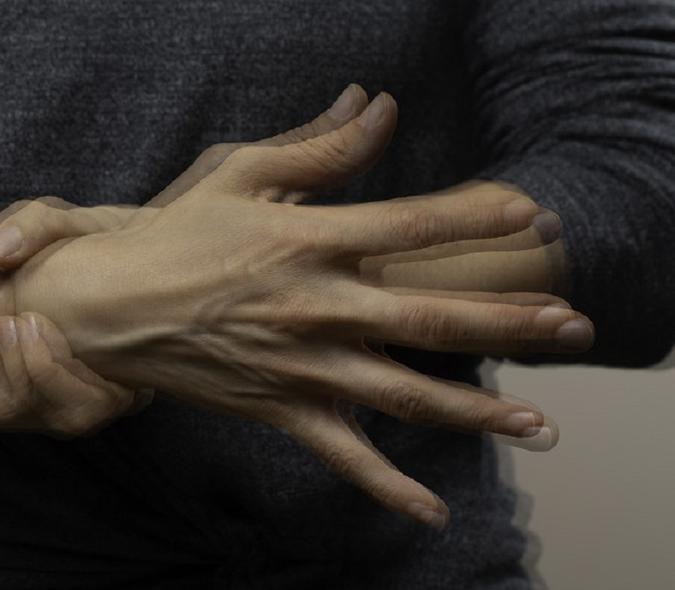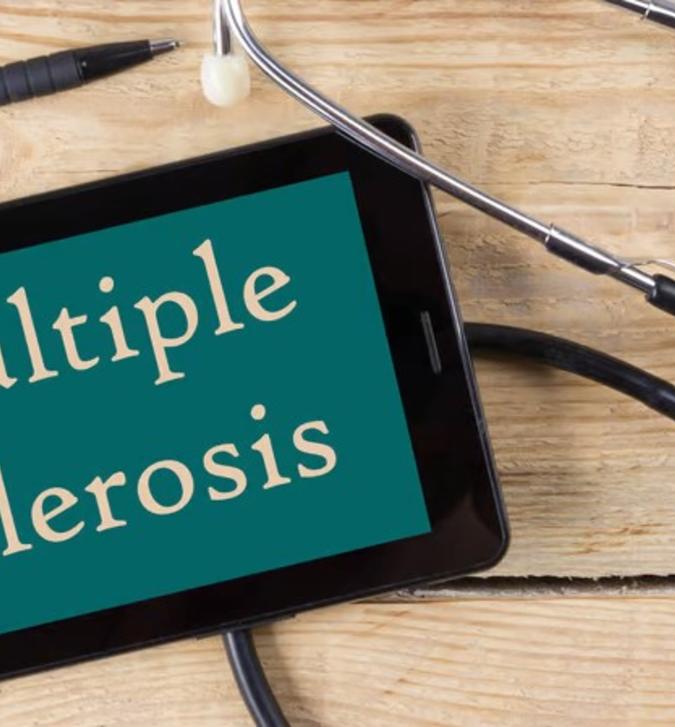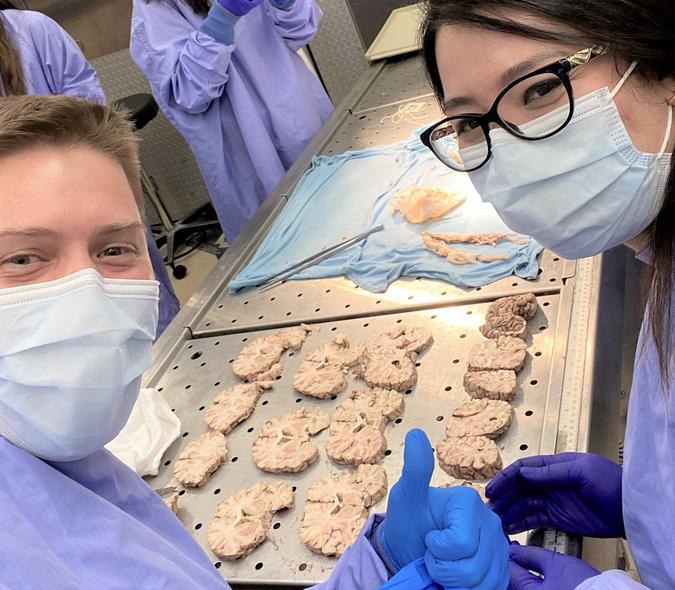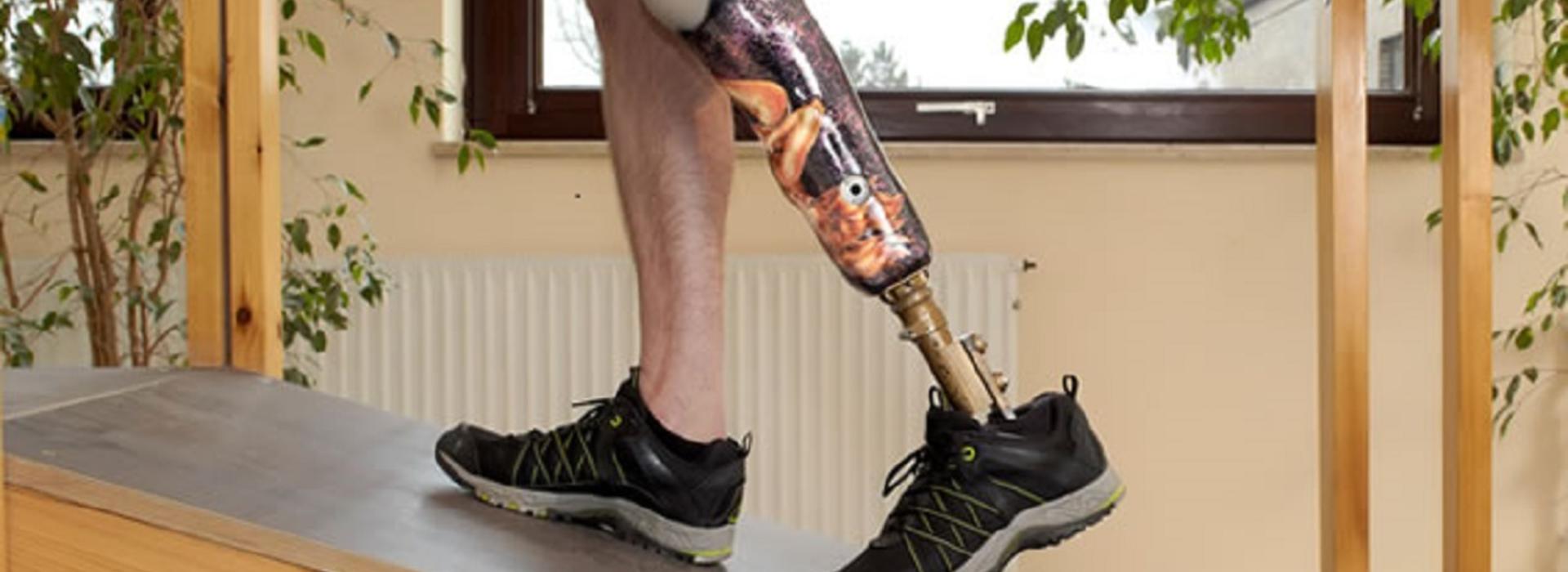
Amputee clinic focuses on meeting its patients’ needs efficiently and effectively
When someone loses a limb, whether because of a medical condition or surgery to remove tumors from bones or muscles, they need specialized rehabilitation. That is exactly what the Amputee Clinic led by Wayne Hsiao, MD, provides.
“It’s a multidisciplinary clinic that we provide, working with our prosthetists and our therapists,” he said. “It really helps us coordinate patient care smoothly. It also helps us troubleshoot issues more efficiently.”
Relieving patient burden
Because it’s a “one-stop shop,” it takes the burden of making multiple appointments with providers off the patient and helps them save time, noted Dr. Hsiao. “It’s better for the team because we can interact more directly with one another while the patient is in the room, which helps us know that we’re all on the same page,” he added.
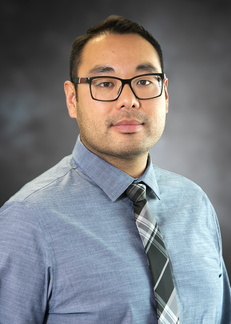
Losing a limb isn’t easy. “It’s challenging both physically and emotionally,” said Dr. Hsiao (pictured at left). “Because patients have different reactions to the situation, having multiple people involved in the rehabilitation process helps them become better users of their protheses and return more quickly to their normal lives.”
Preparing patients
Most often, the clinic serves patients post-amputation. “The most common amputations that we see are on the leg, but we also see arms as well,” said Dr. Hsiao. “In addition, we are trying to take care of people who have not yet had their amputations, helping prepare them for the process so they know what’s ahead.”
One of the goals of many recent amputees is to get fitted for and using their protheses as quickly as possible. “They are anxious to get going – to get walking again,” said Dr. Hsiao. “We make sure that paperwork for insurance coverage is completed. We also make sure that the prothesis fits and works well. Our physical therapists are key to that process. I keep an eye out for any medical complications. If issues do arise, we put our heads together and come up with solutions.”
Quality of life issue
Dr. Hsiao’s focus on helping amputees was a natural result of his training process. “Seeing how well patients responded to and the amazing things that are being done with prosthetics these days was really inspiring,” he said. “These patients will surprise you. Not only do they just want to get back to walking but they also want to play Lacrosse, they want to go hiking, or go jet skiing again. It’s very much a quality-of-life issue.”
The work can be challenging. “We can have difficult issues with prosthetic fit, which causes pain for our patients,” Dr. Hsiao said. “The prosthetics need a lot of fine tuning, and the patients need a lot of education. We are focused on helping people get back to their lives and back to the things they love doing. Everyone’s goals are different, and we do as much as we can to accommodate specific needs.”
Psychological help
Because of the psychological impact of amputation, the clinic’s team includes psychologists to help patients deal with the new loss. “It was part of their individuality,” said Dr. Hsiao. “If it’s obvious that they’re struggling or if we notice that things are a little bit off, we will get them the psychological help they need.”
When Dr. Hsiao looks to the future of amputee care, he sees several trends. “There is a lot of new technology, new materials, and new ways of making prosthetics,” he said. “There is also something called osseointegration where the new leg is connected to existing bone. I’m excited about that coming into our clinical practice in the next several years. Right now, it’s very much in the research stage.”
For more information
If you would like more information about the Amputation Clinic, which is offered once a week in Maplewood, MN, or would like to refer a patient, please call (651) 232-7800.
